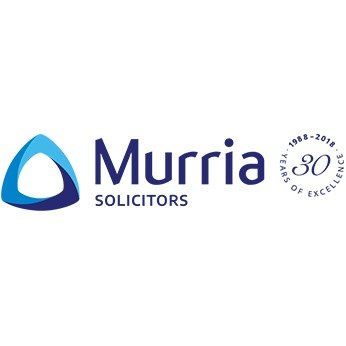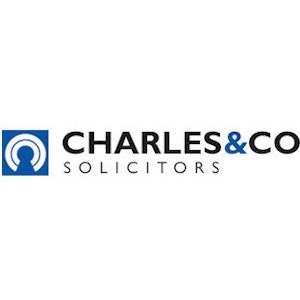Best Corporate & Commercial Lawyers in Birmingham
Share your needs with us, get contacted by law firms.
Free. Takes 2 min.
List of the best lawyers in Birmingham, United Kingdom
About Corporate & Commercial Law in Birmingham, United Kingdom
Corporate and commercial law in Birmingham covers a wide range of legal matters affecting businesses of all sizes. From start-ups and SMEs to large multinational corporations, these laws govern how companies are formed, managed, merged, acquired, and how they interact contractually. Birmingham, home to a thriving business community, is one of the UK’s most significant commercial hubs outside London. The city offers a broad network of legal professionals specializing in areas such as company formation, contract law, mergers and acquisitions, intellectual property, employment law, and commercial disputes. A strong legal framework helps local businesses operate with confidence and competitiveness both nationally and internationally.
Why You May Need a Lawyer
Whether your business is new or established, there are numerous situations where legal help is essential in the corporate and commercial sector. Common scenarios include:
- Setting up a new company, including choosing the right legal structure such as limited company, partnership, or sole trader
- Drafting, reviewing, or negotiating commercial contracts and agreements
- Navigating mergers, acquisitions, joint ventures, or shareholder agreements
- Handling disputes with suppliers, customers, or business partners
- Protecting intellectual property, including trademarks, patents, and copyrights
- Ensuring compliance with UK and regional regulations, including GDPR and anti-money laundering laws
- Addressing employment matters such as contracts, dismissals, and redundancy procedures
- Managing data protection, privacy, and cyber security obligations
- Advising on financing, raising capital, or restructuring debts
- Assisting with business insolvency and liquidation
In all these instances, a qualified lawyer ensures your interests are protected, complex regulations are followed, and potential legal pitfalls are minimized.
Local Laws Overview
Corporate and commercial law in Birmingham is primarily governed by UK statutes and case law, but local nuances and regional regulations may also apply. Key aspects relevant to businesses operating in Birmingham include:
- Companies Act 2006: Governs company formation, director duties, shareholder rights, and filings.
- Commercial Contracts: English law contracts should be clear on terms, obligations, and remedies, with careful attention to restrictions and competition law.
- Employment Law: UK-wide employment law applies, including minimum wage, employment rights, discrimination, and redundancy.
- Intellectual Property: Protection is available through UK Intellectual Property Office registrations and enforcement routes.
- Dispute Resolution: Commercial disputes in Birmingham are typically resolved through the local Business and Property Courts or via alternative dispute resolution methods like mediation or arbitration.
- Real Estate and Leasing: Birmingham’s commercial property market is robust, with specific legal considerations for leases, development, and transfers.
- Regulatory Compliance: Businesses must uphold UK standards for health and safety, environmental protection, and data privacy, with oversight from relevant authorities.
For companies in regulated sectors such as financial services or healthcare, additional industry-specific laws and local authority requirements often apply.
Frequently Asked Questions
What is the process for registering a company in Birmingham?
You need to choose a company structure, select a company name, prepare necessary documents like the memorandum and articles of association, and register with Companies House. A solicitor can guide you through compliance and filings.
What legal documents does my business need?
Typical documents include articles of association, shareholder agreements, employment contracts, terms and conditions, non-disclosure agreements, and commercial lease agreements. The specific documents needed depend on your business type and industry.
How do I protect my company’s intellectual property?
You can protect your intellectual property by registering trademarks, patents, designs, and copyrights with the UK Intellectual Property Office. It is also vital to use confidentiality agreements and monitor unauthorized use.
What should I include in a commercial contract?
A commercial contract should clearly outline the parties involved, scope of work or goods, payment terms, delivery timescales, liability, dispute resolution methods, and termination clauses.
Can a director be held personally liable for company debts?
Generally, company debts are separate from director’s personal assets due to the limited liability structure. However, directors can be held personally liable for fraud, wrongful trading, or breaches of legal duties.
What are my options if a business dispute arises?
Business disputes can be settled through negotiation, mediation, arbitration, or through the courts. Birmingham has access to specialist Business and Property Courts and local mediation providers.
Are there special requirements for employing staff in Birmingham?
UK employment law applies, covering contracts, minimum wage, working conditions, dismissal, and discrimination. Regional factors may be relevant for certain employment rights or local authority regulations.
How do I handle a business merger or acquisition?
A lawyer will help with due diligence, negotiations, contracts, competition law considerations, and regulatory approvals. Each step must comply with UK law and any sector-specific requirements.
What do I need to know about commercial leases in Birmingham?
Commercial leases must specify rent, term, rights and obligations, repairs, and break clauses. Birmingham’s property market also means additional considerations for planning permissions and local taxes.
What are the main compliance issues for businesses in Birmingham?
Common compliance issues include company filings, tax obligations, data protection under GDPR, health and safety requirements, and sector-specific licenses. Failing to comply can lead to penalties and legal action.
Additional Resources
Several organizations and bodies offer support and guidance for corporate and commercial law in Birmingham:
- Companies House - for company registration and compliance
- UK Intellectual Property Office - for IP registrations and disputes
- Birmingham Business & Property Courts - for resolving commercial legal disputes
- Birmingham Chamber of Commerce - for business advice and networking
- HM Revenue & Customs (HMRC) - for tax and VAT matters
- Information Commissioner’s Office (ICO) - for data protection and GDPR compliance
- Local enterprise partnerships and councils - for local regulations and support
- Law Society of England and Wales - for finding qualified solicitors
Many solicitors also offer free or low-cost initial consultations for business clients to help you understand your legal position.
Next Steps
If you or your business requires legal assistance related to corporate and commercial matters in Birmingham, consider the following steps:
- Identify your specific legal needs or the issues facing your business
- Gather any relevant documents such as contracts, company registration papers, or correspondence
- Research local solicitors with expertise in your required area of corporate or commercial law
- Arrange an initial consultation to discuss your situation and receive tailored advice
- Confirm fee structures and timelines before proceeding with legal services
Professional advice is invaluable for ensuring your business is protected, compliant, and well-placed for growth in Birmingham’s dynamic commercial environment.
Lawzana helps you find the best lawyers and law firms in Birmingham through a curated and pre-screened list of qualified legal professionals. Our platform offers rankings and detailed profiles of attorneys and law firms, allowing you to compare based on practice areas, including Corporate & Commercial, experience, and client feedback.
Each profile includes a description of the firm's areas of practice, client reviews, team members and partners, year of establishment, spoken languages, office locations, contact information, social media presence, and any published articles or resources. Most firms on our platform speak English and are experienced in both local and international legal matters.
Get a quote from top-rated law firms in Birmingham, United Kingdom — quickly, securely, and without unnecessary hassle.
Disclaimer:
The information provided on this page is for general informational purposes only and does not constitute legal advice. While we strive to ensure the accuracy and relevance of the content, legal information may change over time, and interpretations of the law can vary. You should always consult with a qualified legal professional for advice specific to your situation.
We disclaim all liability for actions taken or not taken based on the content of this page. If you believe any information is incorrect or outdated, please contact us, and we will review and update it where appropriate.
Browse corporate & commercial law firms by service in Birmingham, United Kingdom
Birmingham, United Kingdom Attorneys in related practice areas.














